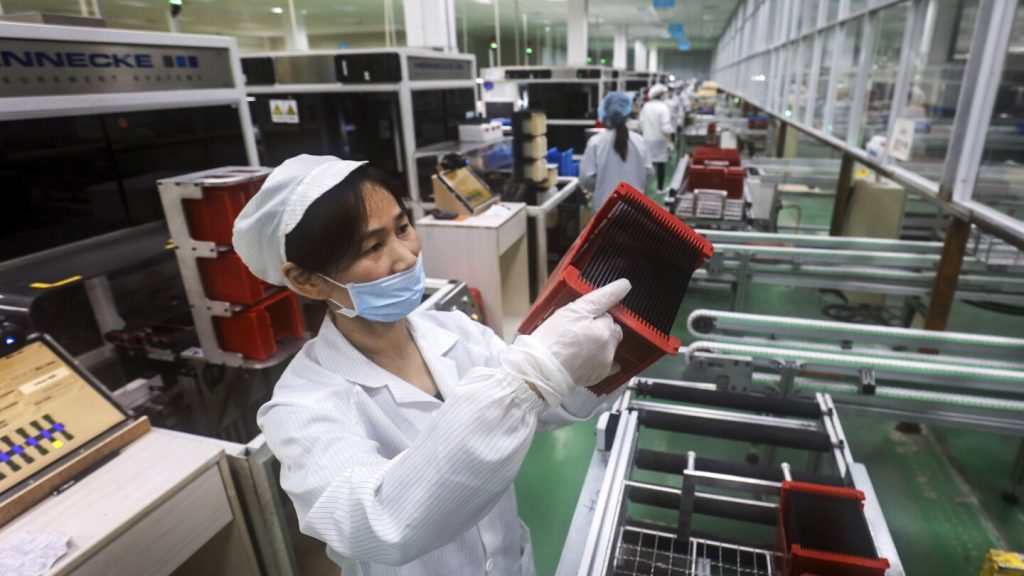The Biden administration is planning to impose new tariffs on electric vehicles, semiconductors, solar equipment, and medical supplies imported from China. These tariffs, expected to be announced on Tuesday, are aimed at addressing China’s manufacturing overcapacity and protecting U.S. jobs and national security. The tariffs on electric vehicles could quadruple from 25% to 100%. The move is also seen as a way to prevent low-priced Chinese exports from overwhelming domestic manufacturing and undermining U.S. climate-friendly investments.
The additional tariffs are expected to have political implications, with both President Biden and former President Trump vowing to be tough on China. Biden has emphasized competition with China rather than conflict, using government support to attract private investment in new factories and technology. Trump has advocated for massive tariffs to reduce the U.S. trade deficit with China. Tuesday’s announcement will likely keep some tariffs imposed during Trump’s administration in place, covering around $360 billion in Chinese goods and including products like syringes and solar equipment.
There are concerns that the new tariffs could lead to a broader trade conflict between the two countries. China is seeking to advance technologically and move up the economic chain, with recent indications that it is cooling production of lithium-ion batteries used in various electronic devices. The U.S. Trade Representative is conducting a review of the Trump-era tariffs, with bipartisan pressure for swift action. Senator Sherrod Brown has called for banning Chinese EVs from the U.S., while the administration is investigating national security risks posed by Chinese-made “smart cars” that gather sensitive information.
The influx of low-priced Chinese electric vehicles into the U.S. market is a major concern for officials, with fears that they could disrupt the domestic auto industry. The introduction of inexpensive Chinese autos could have a significant impact on the U.S. auto sector, which accounts for 3% of America’s GDP. Treasury Secretary Janet Yellen has highlighted the rapid expansion of production in sectors like electric vehicles and solar energy equipment due to Chinese government subsidies. She warned that excessive Chinese capacity could disrupt global markets and threaten the viability of American firms.
The Biden administration’s move to impose new tariffs on Chinese imports reflects ongoing concerns about China’s manufacturing practices and their impact on U.S. industries. The tariffs are part of a broader effort to protect American jobs, national security, and domestic manufacturing, particularly in key sectors like electric vehicles and advanced technology. The decision to increase tariffs, particularly on electric vehicles, could have significant implications for U.S.-China relations and global trade dynamics. It remains to be seen how China will respond to these new tariffs and their potential impact on the global economy.


